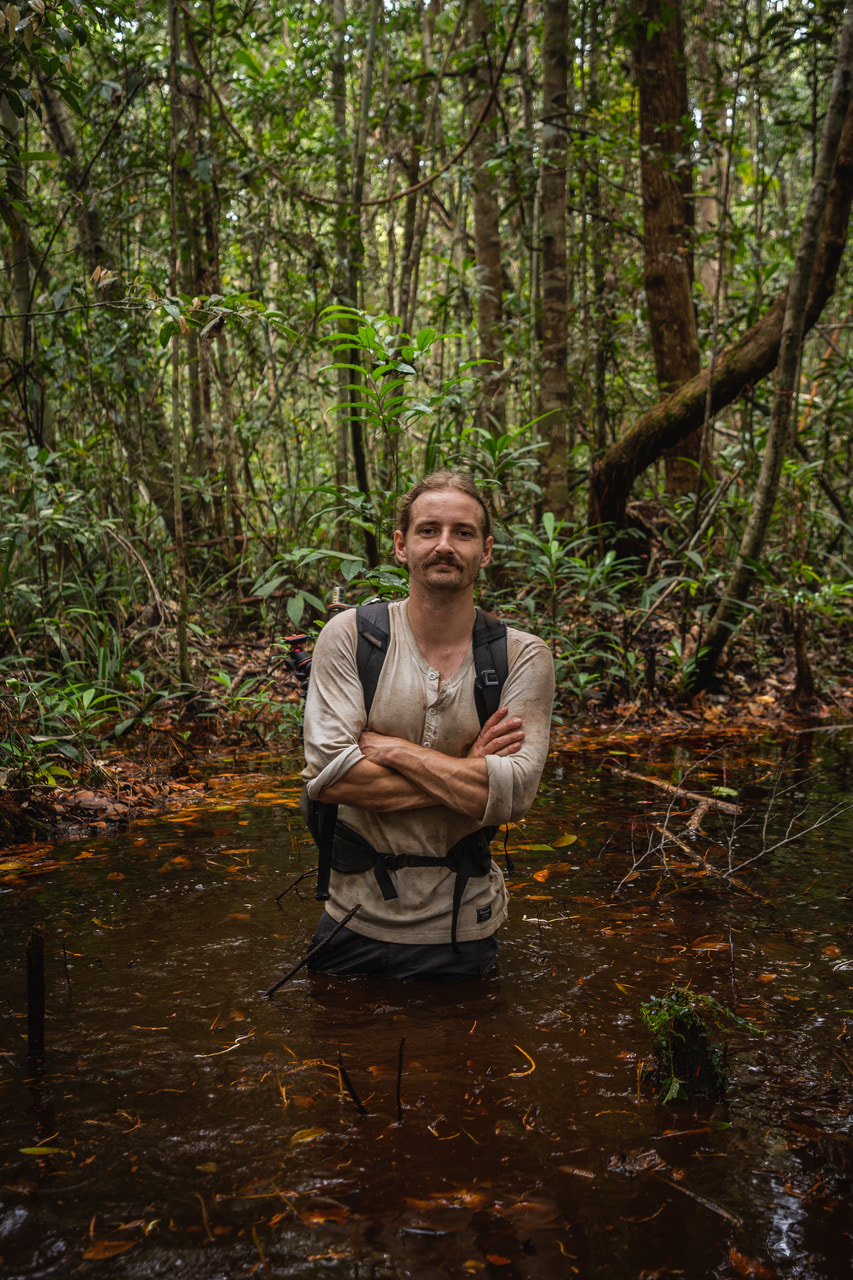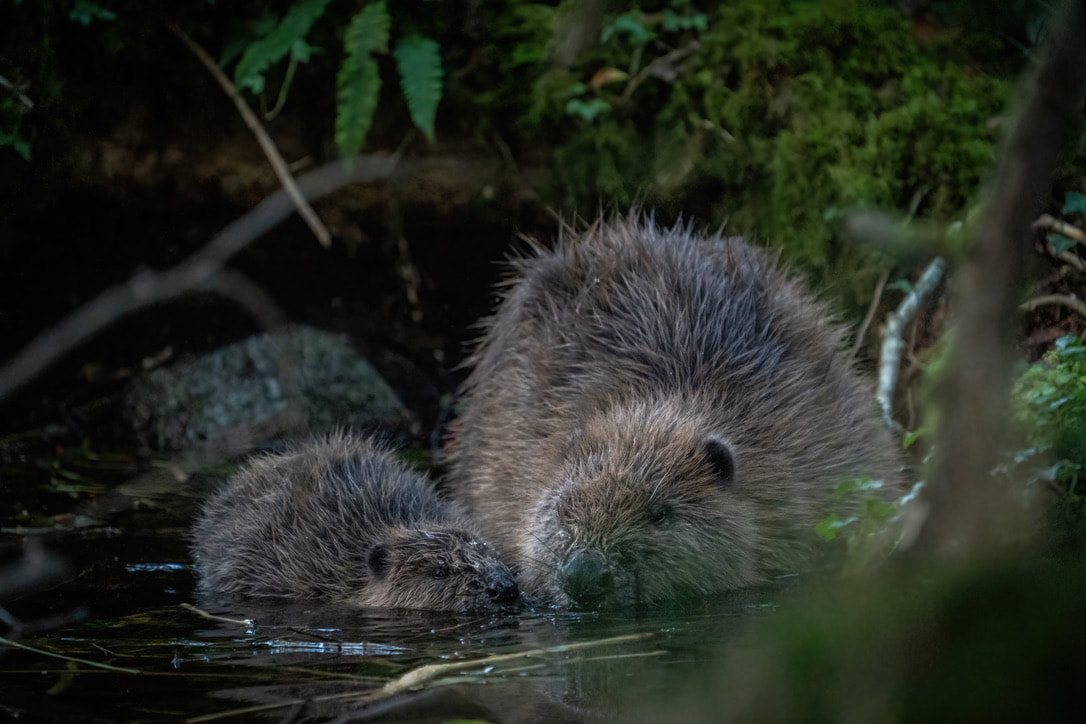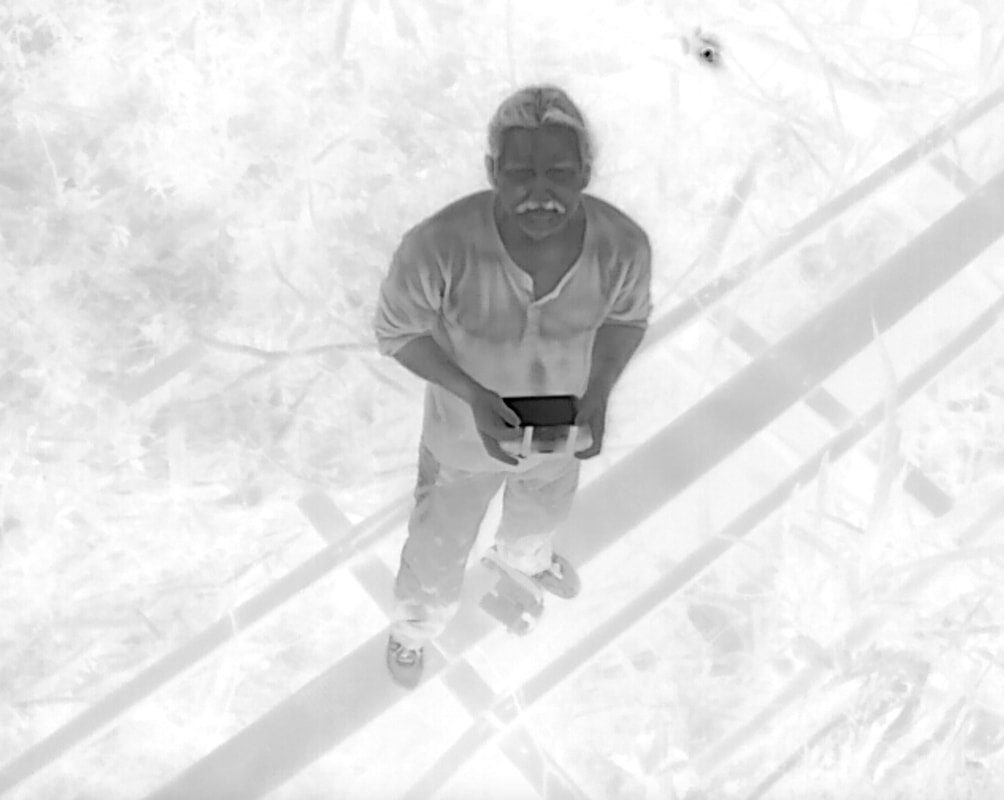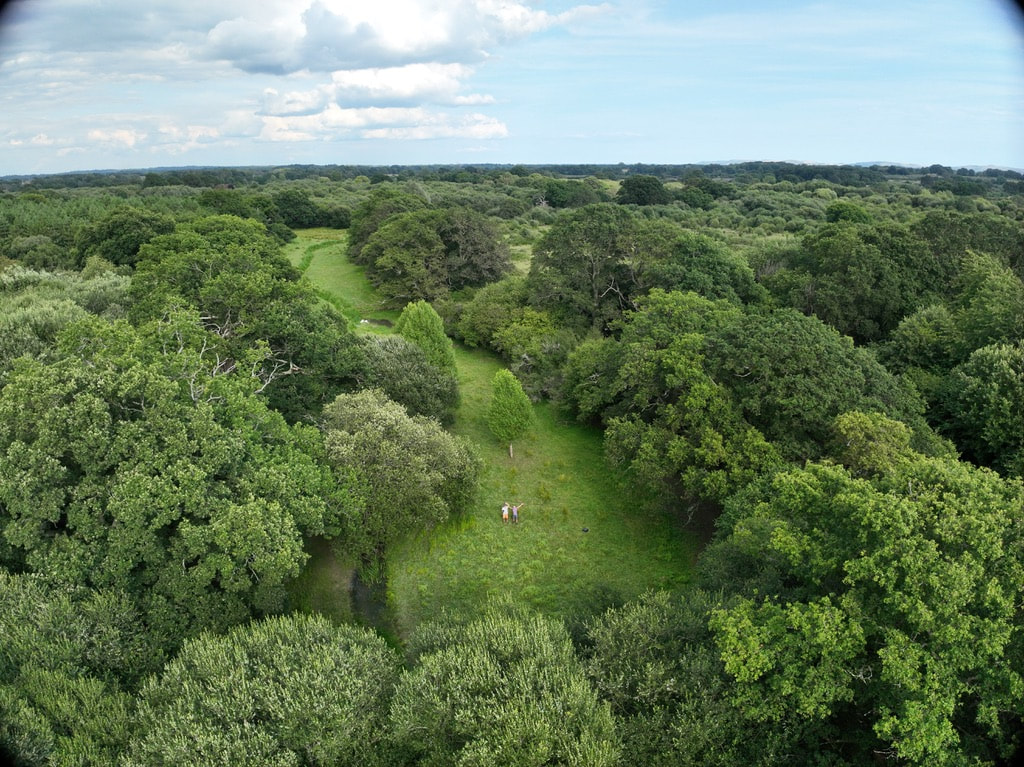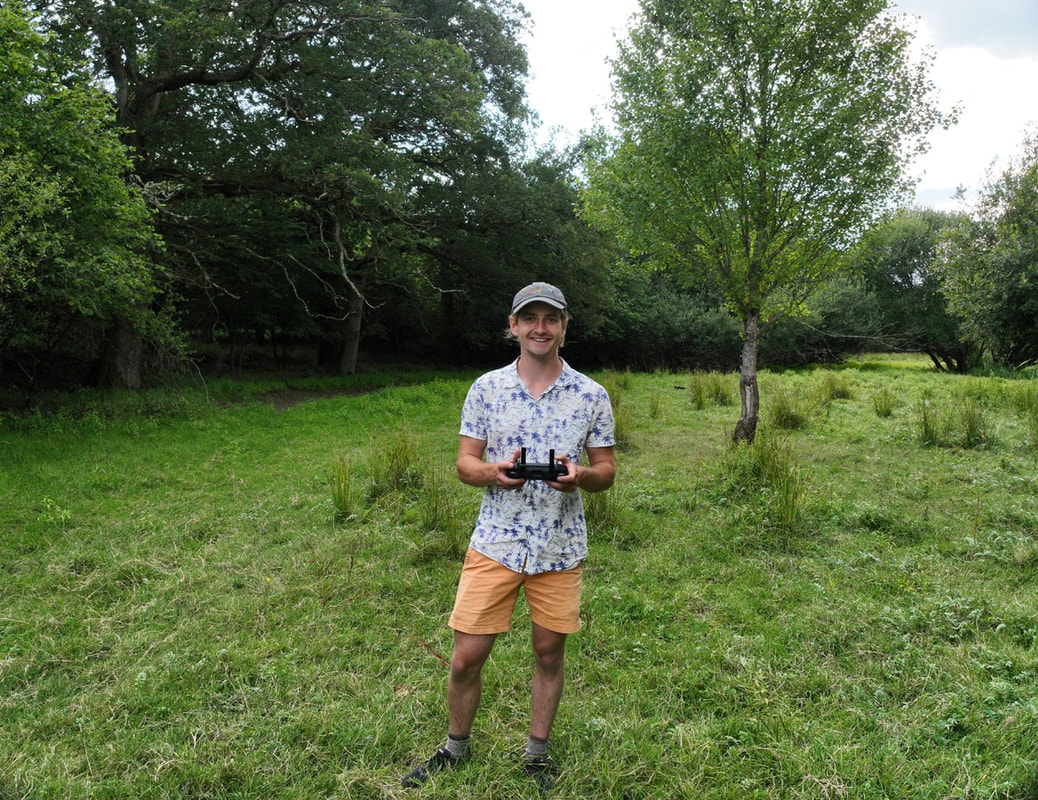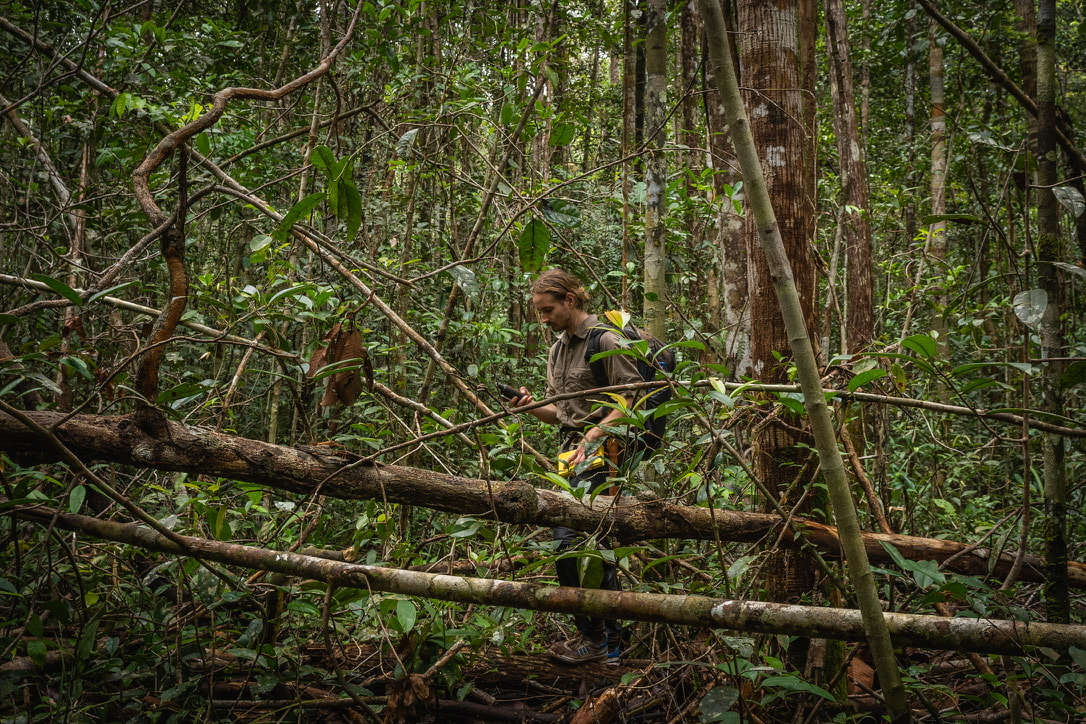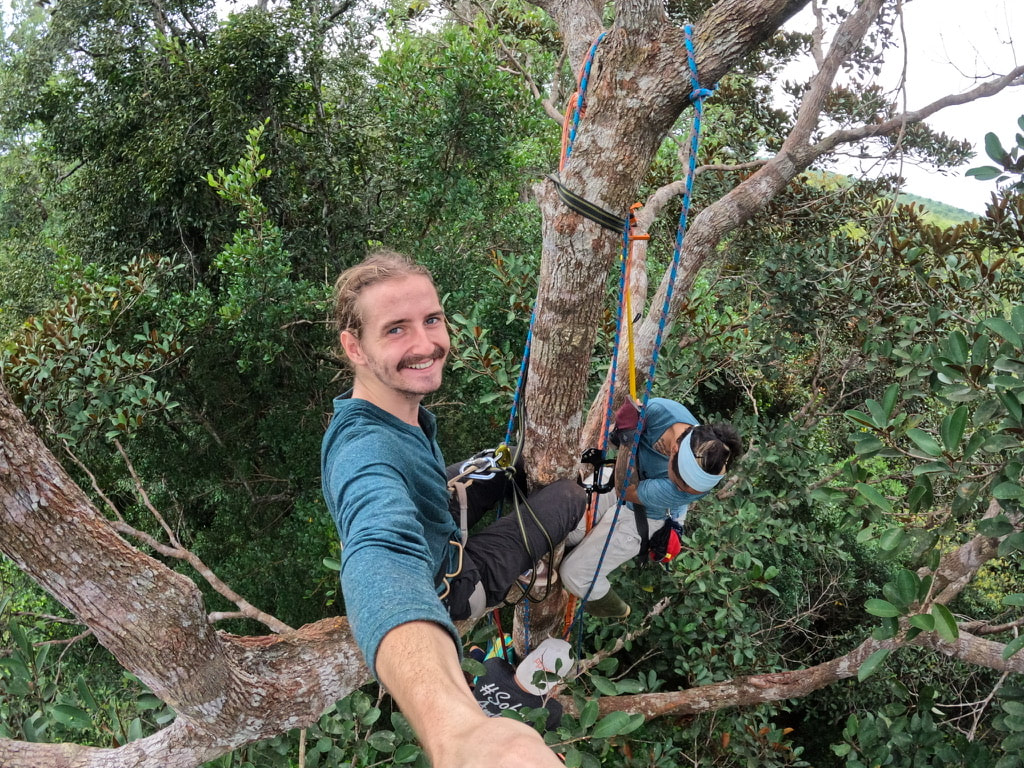A major aspect of my research is the use of remote sensing technology to monitor vegetation changes over time at rewilding sites at a variety of successional stages across the UK. My research places a particular focus on the use of drone-based structure-from-motion photogrammetry and LiDAR to capture landscape changes at high resolution. Using dataloggers, I will also be collecting data on microclimate across rewilding sites, and subsequently use the data to assess the spatial and temporal variation of microclimates for each site. Understanding drivers of microclimate variation is increasingly important in the context of the ongoing climate crisis as it has important implications for species distributions and survival. Given the increasing structural complexity and heterogeneity typical in rewilding, my research will determine whether rewilding can mitigate some of the effects of climate change on species and potentially lead to the establishment of areas of microrefugia.
Previously, I completed a Masters by Research degree at the University of Exeter focusing on the use of drone technology for surveying populations of critically endangered Bornean orangutans (Pongo pygmaeus). During my fieldwork, I collaborated with the NGO, Borneo Nature Foundation, and completed surveys in the Sebangau National Park, Central Kalimantan over four months. I have a considerable passion for the use of technology in enhancing our understanding of ecological processes and species distributions, and for enabling practical conservation. Position: PhD Student
Supervised by: Dr Rebecca Senior, Professor Steve Willis, Professor Philip Stephens Memberships: Conservation Ecology Group (CEG), Behaviour, Ecology and Evolution Research (BEER) Centre Contact Details: Durham University, South Road, Durham, DH1 3LE Email: c[email protected]
|
